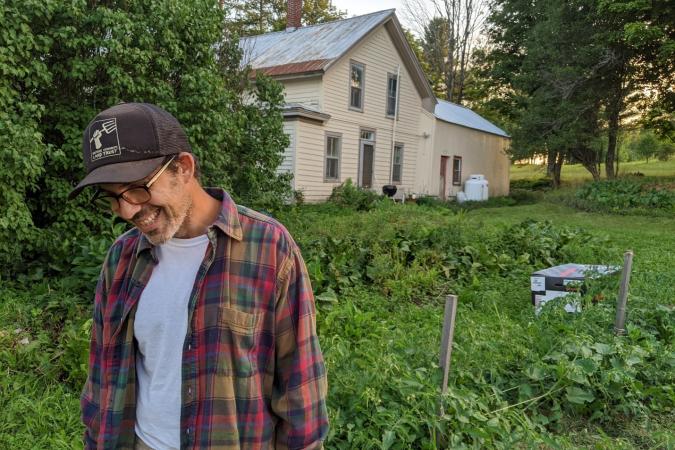Meet the Farmer
Creative Shepherd Farm received its name from farm owner Sebastian Interlandi’s favored approach to both life and agriculture. Trained as an environmental engineer, Sebastian worked for the Philadelphia Water Department before transitioning to teaching high school science for ten years. He was awarded the most creative teacher at his school, and living up to the title, he purchased land in upstate New York in 2009 and shortly after began farming it full-time.
Sebastian is focused on growing systems for a modern agricultural future, integrating his science background into his farming principles. He is committed to a vision of holistically managing the land and the forests to maximize both its biodiversity and soil health. Creative Shepherd specializes in organic potatoes and other vegetables, cheese from local Amish dairy milk, and wool from their flock of sheep. Sebastian is also the founder of a partner company, Paraiso del Pastor Fairtraders, in Ecuador. Wool from Creative Shepherd is brought to Ecuador, where women hand spin it into yarn for knitters. Paraiso del Pastor also works with local artisans to sell a line of alpaca products, including yarn, fabrics, and blankets.
It is Sebastian’s mission to help small farmers and artisans maintain a healthy standard of living, while retaining more autonomy and control of their operations. In summer 2022, Sebastian is opening a small retail shop in Rome, NY with a long-time business partner, where they will sell local organic produce, dry goods, and provide agricultural educational resources. Off the farm, Sebastian is a professor at the University of Texas Rio Grande Valley, where he teaches sustainable agriculture and ecology.
Regenerative & Sustainable Practices
Creative Shepherd Farm is a NOFA-NY certified organic farm that implements ecological principles into their farm management practices. Their regenerative practices include:
- Studying soil nutrient ratios and using intercropping to maintain healthy and balanced nutrient levels. They use on-farm byproducts as soil amendments, with aged sheep manure as the primary source of organic fertilizer.
- Using no synthetic pesticides or fertilizers, and instead using various techniques to control pests, such as rotational planting and planting potatoes in narrow rows interspersed with grass.
- Cover cropping with peas to boost the soil nitrogen.
- Sustainable methods to manage the wooded area of their property, harvesting what is needed for on farm buildings and selling off additional lumber on a 10-year harvest schedule.
- Contributing to local food security by donating a portion of each year's harvest to their local food bank.

